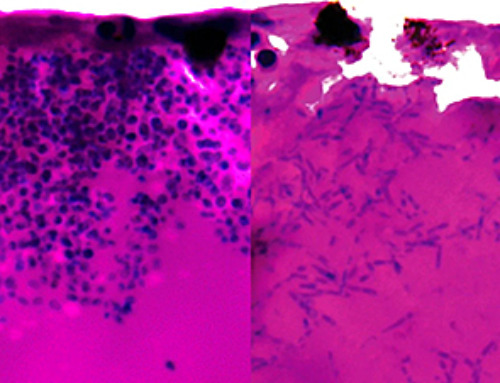Protection against the coronavirus is waning among those who have received both shots of the AstraZeneca and Pfizer vaccines, a new U.K. study has found.
An analysis from the U.K.’s ZOE Covid app study of over 400,000 people who had received both shots of the Pfizer–BioNTech vaccine, showed that it was 88% effective in protecting against the coronavirus a month after receiving both shots. However, its effectiveness fell to 74% five or six months after receiving both doses of the Pfizer vaccine.
The data was collected after May 26, when the delta variant became the dominant strain, said Tim Spector, who is running the ongoing ZOE Covid app study.
Spector, a professor of genetic epidemiology at King’s College London, presented this latest data during a webinar on Tuesday and said that the findings showed a “reduced benefit” of protection from both of these vaccines as the months progress.
Nearly 42 million people in the U.K., 77% of the population aged over 16, have received two doses of a Covid vaccine, according to government data last updated on Tuesday. The daily data showed 30,838 Covid-19 infections had been recorded on Tuesday, while 174 people had died within 28 days of testing positive for the virus.
Alexander Hammers, a professor of imaging and neuroscience at King’s College London, said on the webinar it was already known from other coronaviruses that immunity against the disease didn’t tend to be lifelong.
And even though the data did show a “waning” in the effectiveness of the vaccines over time, Hammers said that people were “still probably at least 50% protected.”
“Remember when the vaccines were first developed it was hoped that they were to have 60%-70% efficacy and everybody was pleasantly surprised that they came in well over 80%, sometimes well over 90,” he added.
Nevertheless, Spector said he was still “a bit worried” by coronavirus data coming out of Israel, which had one of the fastest vaccination programs in the world and was ahead of the U.K.
He pointed out that Israel was starting to see increased hospitalizations and deaths from the coronavirus, despite a large proportion of its population being vaccinated.
Data published by Israel in July, showed that the Pfizer vaccine was just 16% effective against symptomatic infection for those individuals who received two doses in January.
Comparing results is tricky, however, given differences in the nature of the vaccination programs in different countries, as well as differences in study dates, age groups and Covid testing regimes.
News
Scientists Unlock a New Way to Hear the Brain’s Hidden Language
Scientists can finally hear the brain’s quietest messages—unlocking the hidden code behind how neurons think, decide, and remember. Scientists have created a new protein that can capture the incoming chemical signals received by brain [...]
Does being infected or vaccinated first influence COVID-19 immunity?
A new study analyzing the immune response to COVID-19 in a Catalan cohort of health workers sheds light on an important question: does it matter whether a person was first infected or first vaccinated? [...]
We May Never Know if AI Is Conscious, Says Cambridge Philosopher
As claims about conscious AI grow louder, a Cambridge philosopher argues that we lack the evidence to know whether machines can truly be conscious, let alone morally significant. A philosopher at the University of [...]
AI Helped Scientists Stop a Virus With One Tiny Change
Using AI, researchers identified one tiny molecular interaction that viruses need to infect cells. Disrupting it stopped the virus before infection could begin. Washington State University scientists have uncovered a method to interfere with a key [...]
Deadly Hospital Fungus May Finally Have a Weakness
A deadly, drug-resistant hospital fungus may finally have a weakness—and scientists think they’ve found it. Researchers have identified a genetic process that could open the door to new treatments for a dangerous fungal infection [...]
Fever-Proof Bird Flu Variant Could Fuel the Next Pandemic
Bird flu viruses present a significant risk to humans because they can continue replicating at temperatures higher than a typical fever. Fever is one of the body’s main tools for slowing or stopping viral [...]
What could the future of nanoscience look like?
Society has a lot to thank for nanoscience. From improved health monitoring to reducing the size of electronics, scientists’ ability to delve deeper and better understand chemistry at the nanoscale has opened up numerous [...]
Scientists Melt Cancer’s Hidden “Power Hubs” and Stop Tumor Growth
Researchers discovered that in a rare kidney cancer, RNA builds droplet-like hubs that act as growth control centers inside tumor cells. By engineering a molecular switch to dissolve these hubs, they were able to halt cancer [...]
Platelet-inspired nanoparticles could improve treatment of inflammatory diseases
Scientists have developed platelet-inspired nanoparticles that deliver anti-inflammatory drugs directly to brain-computer interface implants, doubling their effectiveness. Scientists have found a way to improve the performance of brain-computer interface (BCI) electrodes by delivering anti-inflammatory drugs directly [...]
After 150 years, a new chapter in cancer therapy is finally beginning
For decades, researchers have been looking for ways to destroy cancer cells in a targeted manner without further weakening the body. But for many patients whose immune system is severely impaired by chemotherapy or radiation, [...]
Older chemical libraries show promise for fighting resistant strains of COVID-19 virus
SARS‑CoV‑2, the virus that causes COVID-19, continues to mutate, with some newer strains becoming less responsive to current antiviral treatments like Paxlovid. Now, University of California San Diego scientists and an international team of [...]
Lower doses of immunotherapy for skin cancer give better results, study suggests
According to a new study, lower doses of approved immunotherapy for malignant melanoma can give better results against tumors, while reducing side effects. This is reported by researchers at Karolinska Institutet in the Journal of the National [...]
Researchers highlight five pathways through which microplastics can harm the brain
Microplastics could be fueling neurodegenerative diseases like Alzheimer's and Parkinson's, with a new study highlighting five ways microplastics can trigger inflammation and damage in the brain. More than 57 million people live with dementia, [...]
Tiny Metal Nanodots Obliterate Cancer Cells While Largely Sparing Healthy Tissue
Scientists have developed tiny metal-oxide particles that push cancer cells past their stress limits while sparing healthy tissue. An international team led by RMIT University has developed tiny particles called nanodots, crafted from a metallic compound, [...]
Gold Nanoclusters Could Supercharge Quantum Computers
Researchers found that gold “super atoms” can behave like the atoms in top-tier quantum systems—only far easier to scale. These tiny clusters can be customized at the molecular level, offering a powerful, tunable foundation [...]
A single shot of HPV vaccine may be enough to fight cervical cancer, study finds
WASHINGTON -- A single HPV vaccination appears just as effective as two doses at preventing the viral infection that causes cervical cancer, researchers reported Wednesday. HPV, or human papillomavirus, is very common and spread [...]





















